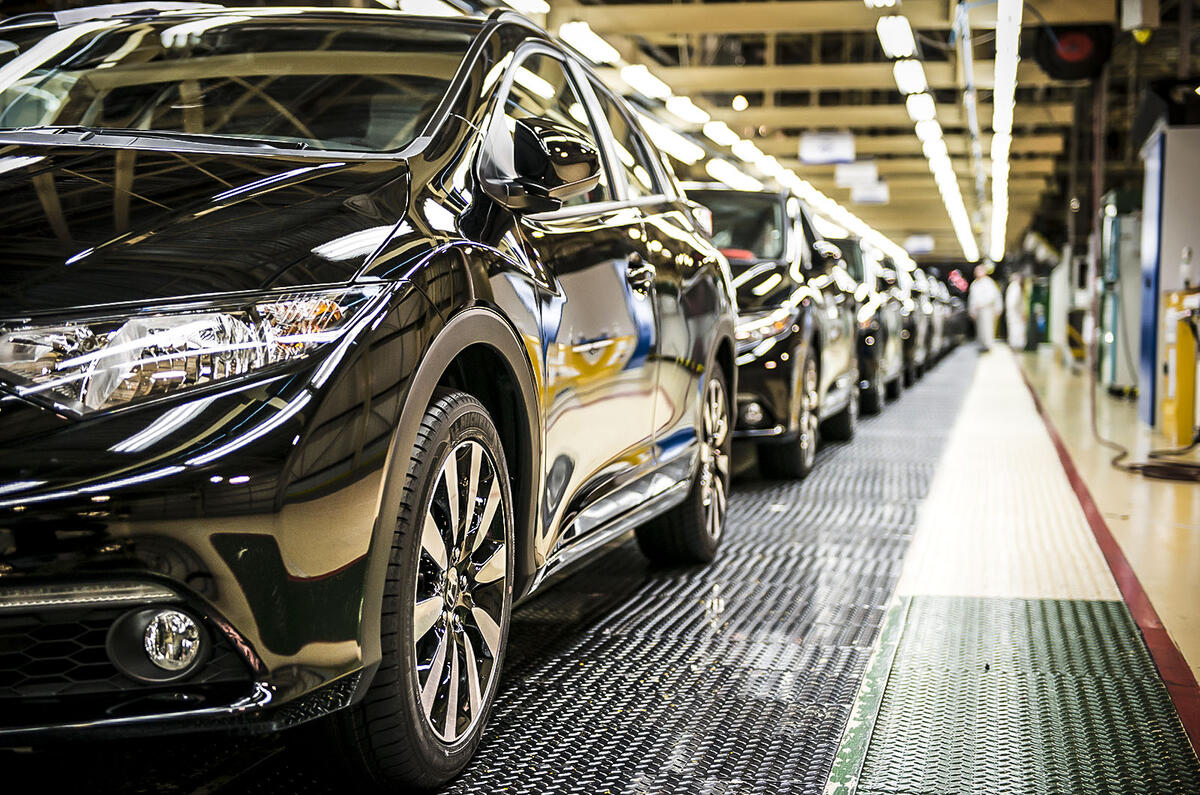UK car registrations this October surpassed last October by 1.4%, according to official industry figures.
More than one year on from the Volkswagen emissions scandal and four months after the UK’s vote to leave the European Union (EU), sales have continued to grow, with SMMT figures showing that 2,330,663 cars have been registered in total across 2016 so far, which is some 56,000 more than the same period last year.
Both diesel and private sale registrations have fallen though, suggesting that dieselgate may have taken its toll on the public’s confidence in diesels, as well as buying a car overall. UK manufacturers' prominence on mainstream news as they fought to forge a deal with the Government concerning Brexit may also have dented public confidence.
Diesel car registrations continued to fall, at 2.4% down on October of last year, while petrol climbed by almost 5%, and alternatively-fuelled vehicles (AFVs) grew by 12.4%, soaking up the lost diesel registrations as more and more manufacturers introduce such cars to their respective ranges.
So far in 2016, 75,987 AFVs have been registered; making this market almost as large in number as the private car market in October. This shows a 23% growth across the year, but demonstrates how far AFVs have to go before they overtake petrol and diesels.
Again, fleet registrations bolstered the market, growing by 4.2% to 96,440 across October, while private registrations and business registrations both fell.
Last month represented the third October in a row in which new car registrations had only small growth; October figures have remained at roughly the same level since 2013, despite the month coming just after the introduction of each year's new numberplate.
The Nissan Juke and Kia Sportage were the ninth and tenth best-selling cars in the UK in October, the first time this year they've appeared in the monthly top ten list. So far, October's top eight all also feature in the top ten best-selling cars of the year. The Audi A3 maintained its position as the tenth best-selling car of 2016, being the fifth best-seller in October, while the Ford Fiesta was comfortably ahead of the pack, having surpassed 100,000 registrations.
The UK's best-selling cars of 2016 are as follows:
Ford Fiesta - 103,945
Vauxhall Corsa - 68,831
Ford Focus - 61,233
Volkswagen Golf - 59,474






Join the debate
Add your comment
More "pre-registers" to...
"As many as one in five new cars are being pre-registered by dealers in order to meet manufacturers' sales targets - a practice that could be skewing overall sales figures and confusing customers." Autocar 28Oct16
Pre registered cars are shown as fleet sales
The SMMT figures of fleet sales include all these pre registered cars.
TFI
xxxx wrote:
Total sales need to decline. The only truly environmentally friendly transport policy is to encourage people to keep old cars running.
Company car tax changes ahead?
The media is reporting on possible plans to be announced in the autumn statement regarding employer funded cars. Currently employees can be provided with a company funded car with a tax advantage to the company and employee resulting in less tax income for the treasury. The employee currently is only taxed at a low rate compared to their normal 20/40/45% rates of income tax. It is also proposed that the government will remove the taxation incentives for low Co2 emissions regarding company car taxes just as they already have for VED tax post April 2017
Campervan wrote:
Very good move. I've never liked the company car culture. Mostly because the fact that companies claim the costs as tax deductible meant that dealers could charge massively inflated labour rates, about which the companies didn't care since they weren't paying for it, but private buyers had to fork out these prices as well, from their own pockets.
Latterly, although there have been intentions for the taxes to favour lower emission cars, the level of taxes has remained too low, and the tax has not reflected the true cost of owning the cars. I would like to see company cars taxed out of existence altogether, by adding the full purchase price of the car to the salary of the user and charging income tax at their highest rate on the full amount, every year. Likewise with any fuel allowance.
People would refuse company cars and negotiate a straight cash wage, and then would choose their own car more carefully, knowing that they had to pay for its upkeep themselves, and there would be a better competitive element to the servicing market, which would not be warped by companies not spending their own money.